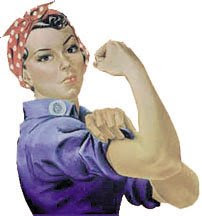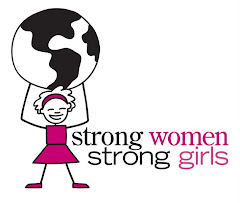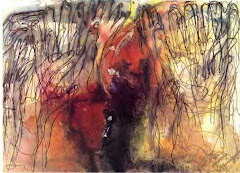I recently attended a speech on Reproductive Health in North Africa and Middle East by Dr. Kimberly Mills (sponsored by Voices for Choices student group at GW). Dr Mills has researched the M.I.N.A .area, specifically focusing on Tunisia and how the reproductive health of women is addressed in the traditionally Islamic areas. She spoke on the stereotypes that befall Islamic women and MINA area because of the veils that the women wear around.
There are 4 schools of Sunni Law in Islam; 1. Hanafi 2. Maliki 3. Shafi'i 4. Habali Within these 3 schools there are different takes on the text on the subject of Abortion. From the text (in Mills' translation/in her shorthand): "When killing is a soul, it is NOT okay. The question becomes, when does ensoulment take place? Also, if the health of the mother is in jeopardy, it is necessary to abroad the fetus." From here there are many ways that the different leaders of the community can choose to translate and interpret the text. Mills said that depending on the country and who is making the laws there were changes to the Islamic law you follow.
In Tunisia; however, abortion is not considered a "big deal". Mills described how many of the women she interacted with there would ask her why they saw on TV all the protests of abortion rights in the U.S., etc. In their view it was "no one else's business". In 1980 Tunisia passed a law where there is free and on demand abortions for anyone who needs them. Previous to that, it was only married women who could get legal abortions, but in 1980 it was changed to all women. (Unmarried women have a seperate door they 'slip in through' on the side within the clinics for family planning). The ruling says that 120 days after conception is when the baby is seen to be ensouled, and so that is the "cutoff" point of when a woman can get an abortion. Tunisia is almost more progressive because women are allowed to get their own divorce, without the consent of their husbands, and they also get custody of their children if they do get a divorce. (In many countries where women can get divorces, the children still belong to the man. )
Along with abortions, family planning clinics in countries like Tunisia offer women help with baby care such as OBGYN appointments, midwife services, help feeding a baby, milking their breasts if they don't have a pump, etc.
In Saudi Arabia, the common practice of marrying your first cousin has caused an issue of genetic blood disorders within the community, so Saudi Arabia allows abortions if there is a genetic issue because of incestual pairings. In Algeria and Egypt rape is the only reason to get an abortion. In Iran there are condoms widley available, but not advertised towards women for health reasons, and abortions are limited (especially for single women). Sterilization is a process that is part of the family planning many of the M.I.N.A. countries use to stifle their population growth. In Tunisia sterelization is free. Mills found that the most common thought amongst Islamic countries is that the women are too stupid to be able to handle taking pills b/c they would forget to take them once a day, so sterilization was a better plan.
Mills said that while Tunisia is considered a non-progressive country by the US standards because the women are still seen in subservient roles, their views on reproductive helath were much farther than the US'. Mills then ended with: "They are the 'Arab light' of the Arab world - the diet coke of Arabs if you will."
Comments? Questions? Let's hear them!
THE KIDS HAVE BEEN UP since seven-thirty
-
THE KIDS HAVE BEEN UP since seven-thirty playing machine amusements and
viewing toons. What a crime for them to be inside on such an excellent day,
you har...
11 years ago















.jpg)




.svg.png)

.jpg)
1 comment:
wow it's really interesting to see that in Islamic countries they are way more lax about abortions. i guess i always think of that culture as more conservative because of the way they dress, but it doesnt cover all aspects of life... interesting stuff.
Post a Comment